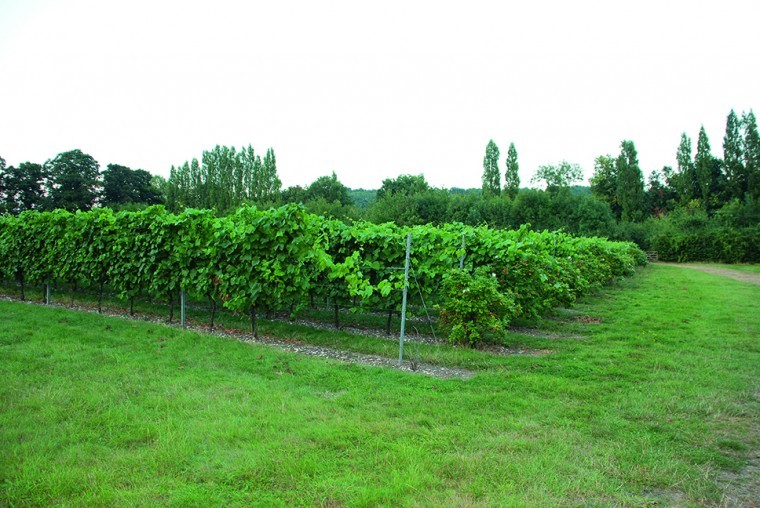Nestled in the chalk stream valley of Shoreham, Kent, The Mount Vineyard was bought by Simon Greenwood five years ago, and has since developed into a popular attraction in the small Sevenoaks village.
Consisting of 28 acres, the small estate has 10 acres under vine, growing eight different varieties of grape, to produce both still and sparkling wines.
Thriving off local tourism, the vineyard has its own wine bar, and offers wine tasting evenings and vineyard tours during the summer months.
The vineyard benefits from the sunny microclimate of the Darent chalk stream valley, creating an ideal environment for vines to thrive. With just four days less sunlight per year than Champagne, the warming climate allows grapes to be harvest in October to allow maximum time for the sugars to develop. Sparkling wines are the most commonly produced wine in the UK due to the need for less sugars, which need legal approval to be added artificially.
The vines at Mount Vineyard are pruned to encourage morning sunlight, unlike in French wine producing regions where afternoon sun is favoured. But the vineyard is obviously doing something right after winning a number of awards including silver at international level.
Although there is no winery on site, grapes are sent to a plant in Dorking where they are processed and then stored. But this comes at a cost explains vineyard manager, Miles Archibald: “We won’t be making any wines this year but instead selling the grapes. We still have a £50,000 wine bill from last year and with such a high cost of production we struggle to keep the price per bottle down.”
The weather hasn’t helped this year after heavy hailstones in June damaged the otherwise fruitful crop.
The vineyard has instead decided to concentrate on diversifying the business and will this month be opening up a guesthouse overlooking the vineyard and beyond to the famous Shoreham chalk cross. They are also looking to open a restaurant at the already popular wine bar, and in the future start an open air cinema during the summer months.
Each Wednesday the vineyard offers wine tasting and vineyard tours for £20 per head where visitors can learn more about the site and its wines. This is usually fully booked throughout the season.
The vineyard has wines on sale ranging from sparkling rose to pinot noir. Each name has a story behind it, after Simon moved to the estate and found a drawer full of old keys. He chose his favourite key, which is now pictured on the front of the bottle, each with related names such as Cellar Key and Rose Key.
The wines are marketed through the on site wine bar, on their website and through local shops and village stores.
Still in its early stages, Mount Vineyard is concentrating on getting its brand known and hopes to tackle the London markets soon, with their white sparkling wine already being served in The Ritz.
With plans to expand into brandy, gin and vodka, Miles sees this as a way to reuse grapes and create a fast turnover.
“We can re press the grapes to produce gin and vodka that can be made one day and sold the next unlike wine which takes a great deal of time. We will always be a vineyard focusing on wine production but we need to find other ways to generate income.”
In the future, Simon plans to build a winery on site, but at a cost of £100,000, this is a large investment.
Roses at the end of each vine not only help to detect early signs of disease, but also date back to pre mechanised days when horses were used to harvest the crop. The thorns were meant to prick the horse and encourage it to carry on moving at the end of each row. The white roses represent red wine and the red roses represent white wine varieties growing.




